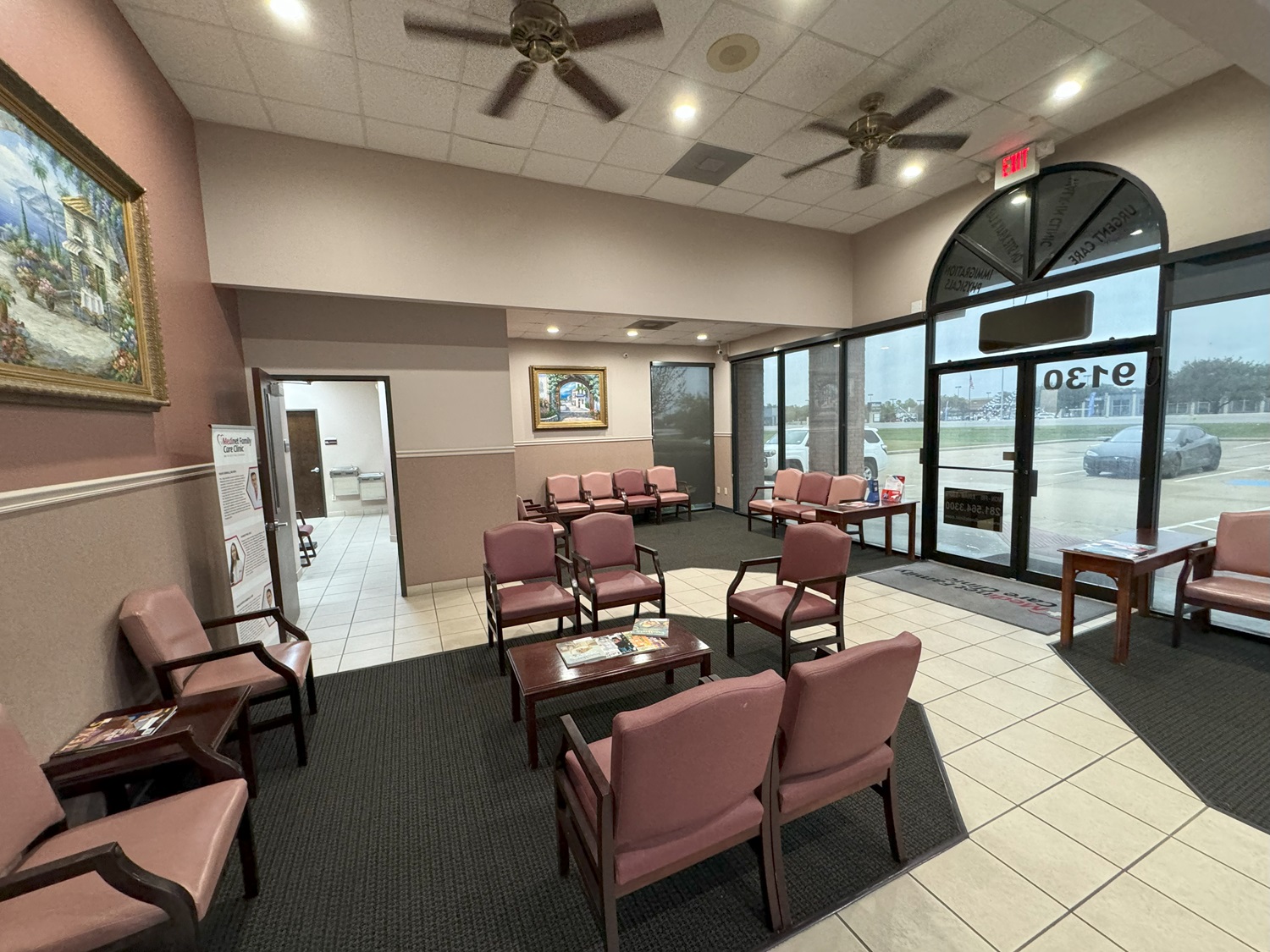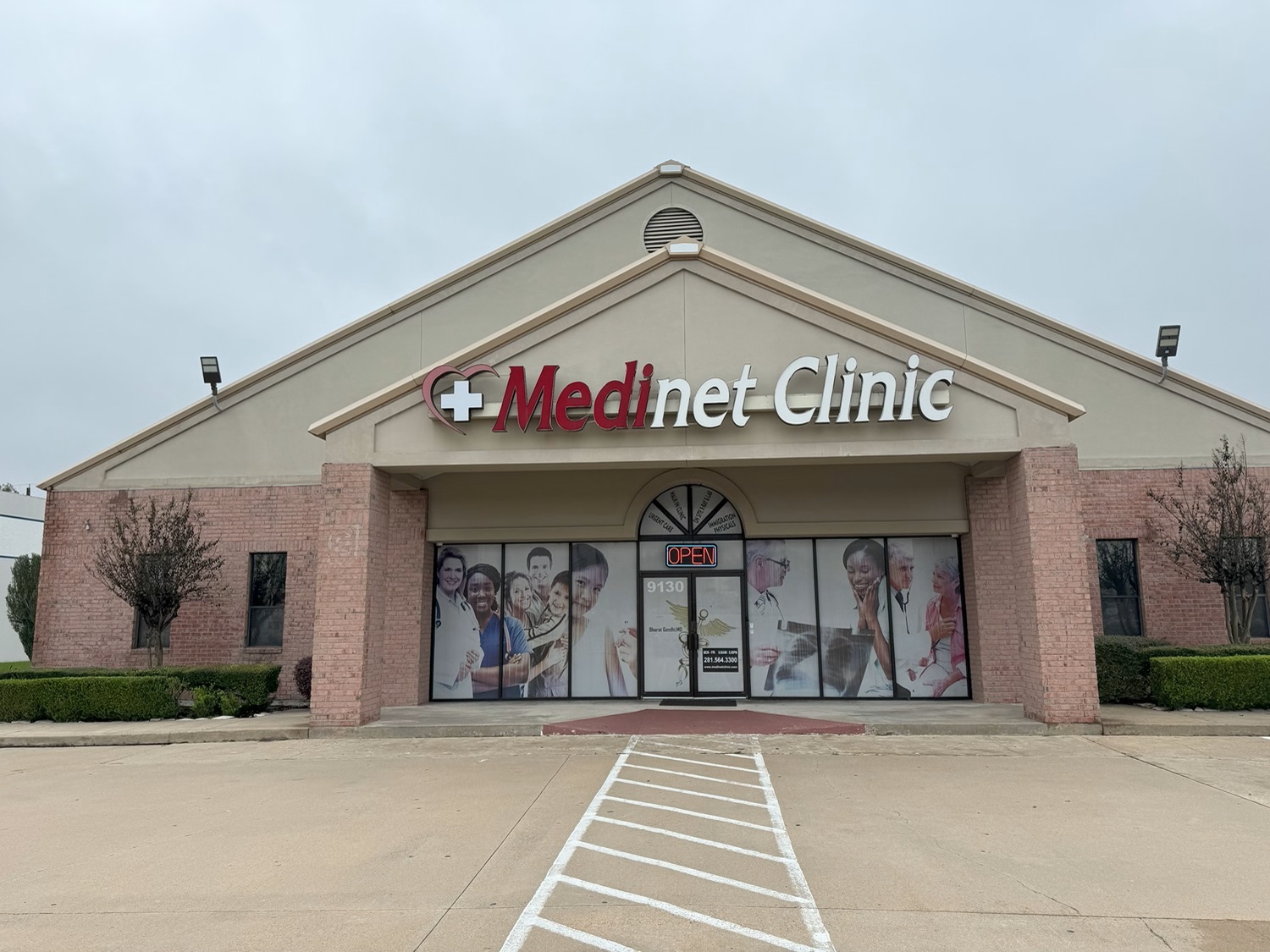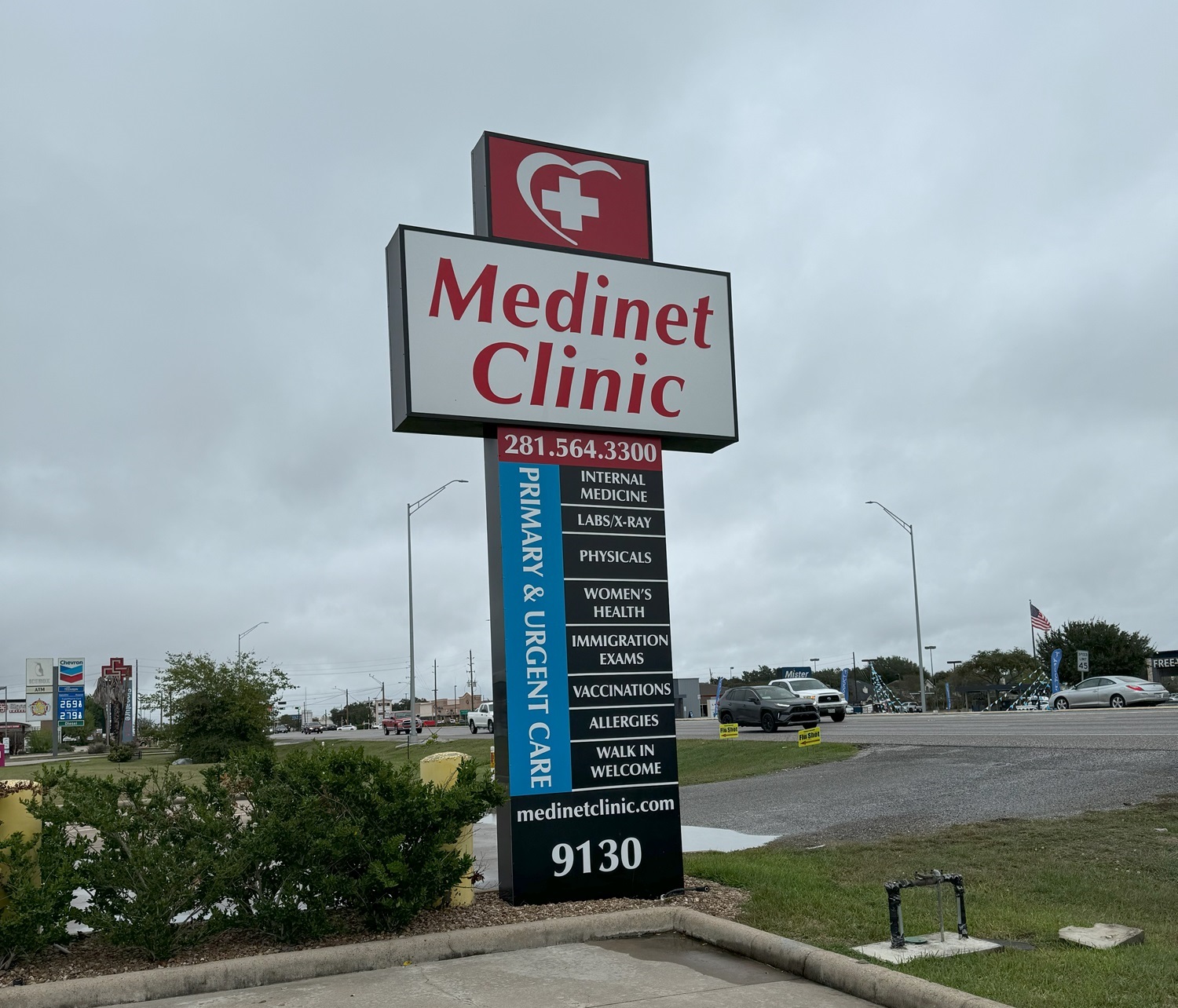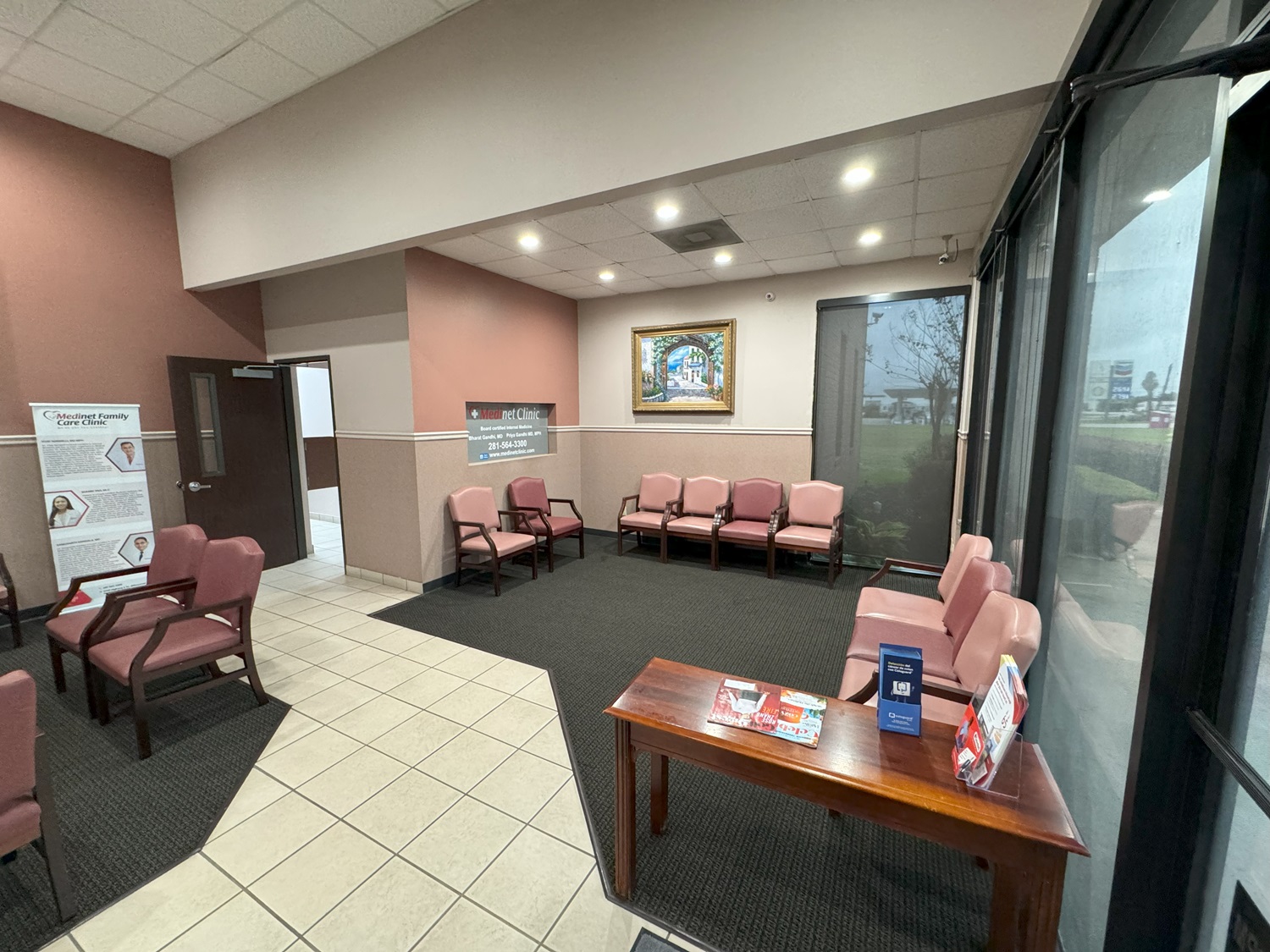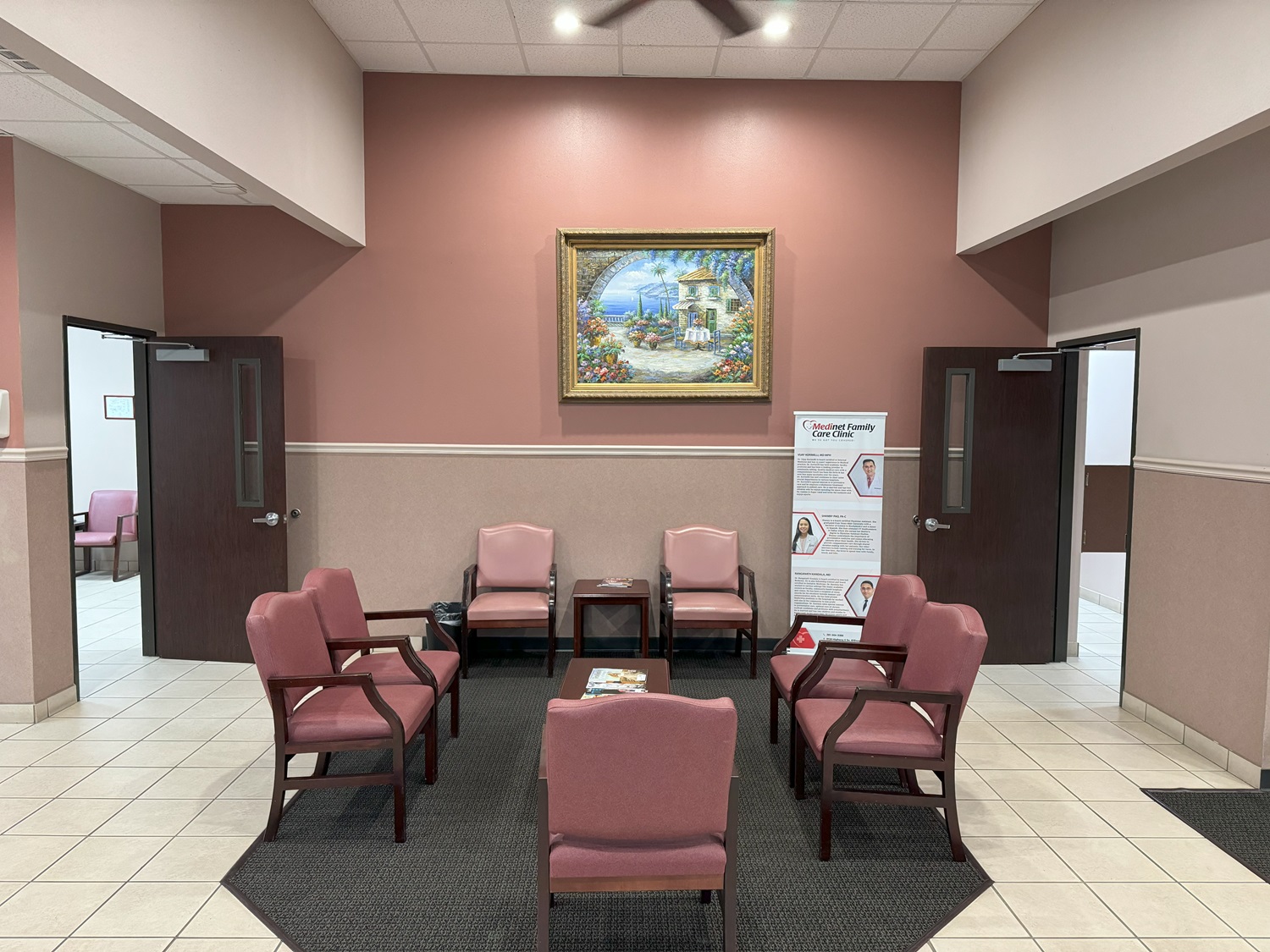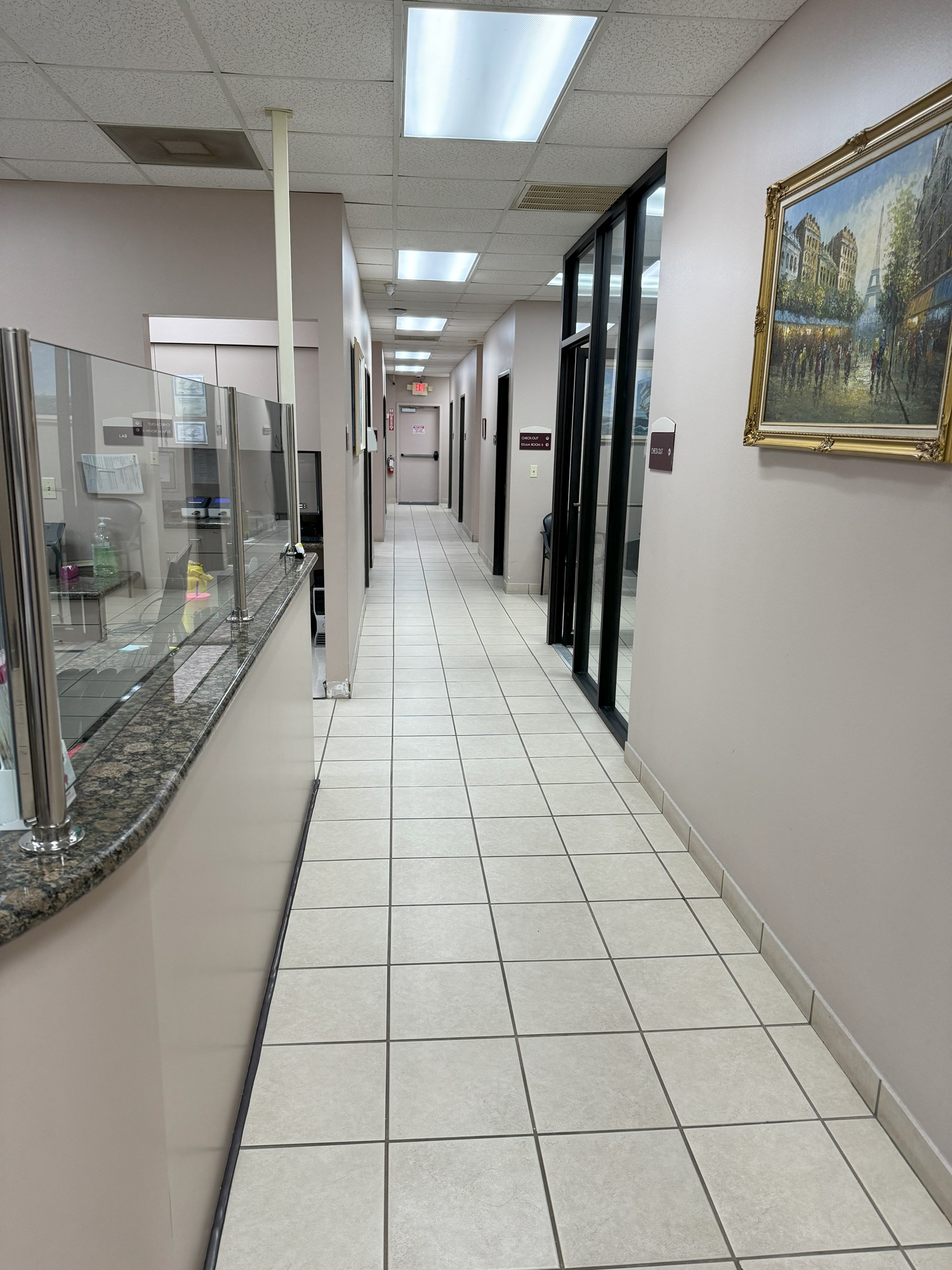WALK-IN
WELCOME
We believe in making healthcare convenient for you. Whether it's a sudden concern or your preferred way to access care, our team is ready to assist.

LESS
WAIT TIME
Out dedicated staff ensure that you spend less time in the waiting room and more time receiving the personalized attention you deserve. Your convenience and prompt care are our priorities
VACCINATION
Our experienced healthcare professionals ensure that you and your family stays up-to-date on essential vaccinations, promoting long-term health and well-being.
PHYSICIANS
Our team of skilled internal medicine specialists dedicated to providing comprehensive and advanced medical care.
Based in Houston, Texas, Medinet Family Care Clinic was founded in 1997 on the premise that everyone deserves quality, comprehensive, and compassionate medical care. The team at Medinet Family Care Clinic offers services related to general physical and well-woman exams, immunizations, allergy treatment, diabetes, hypertension, and heart disease.
Committed to ensuring short wait times, loving medical attention, and a full range of services, Vijay Korimilli, MD & Dr Ranganath Kandala, MD and his team always make sure that all your questions are answered, that your symptoms are treated promptly, and that you can feel comfortable discussing any topic related to your health.
Medinet Family Care Clinic also offers immigration exams for individuals seeking to obtain a green card or citizenship.
With its same-day appointment availability, Medinet Family Care Clinic is there for you.
• INTERNAL MEDICINE
• FAMILY MEDICINE
• ALLERGY / IMMUNOLOGY
• WOMEN's HEALTH
• CHRONIC DISEASE MANAGEMENT
• VACCINATIONS





